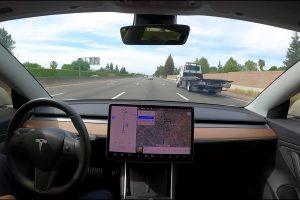Key Points
- 🚗 Volvo will cease production of diesel vehicles by early 2024.
- 🌍 The decision is part of Volvo’s commitment to focus on electric powertrains and achieve climate neutrality by 2040.
- 🌱 Volvo aims to produce only electric vehicles (EVs) from 2030 onward.
- 🔋 The company has divested from internal combustion engine development and is no longer funding R&D for ICE.
- ♻️ Volvo is partnering with Connected Energy to recycle past EV batteries into energy storage systems.
- 🌐 The move aligns with the urgent need for climate action, as emphasized by the United Nations Global Climate Stocktake report.
- 🌟 Volvo’s CEO calls for industry and political leaders to take strong action against climate change.
- 📅 The announcement coincides with Climate Week NYC, where Volvo participates in discussions on transitioning to EVs.
- 🇸🇪 Battery energy storage systems will be used at Volvo’s production facility in Gothenburg, Sweden.
This week, Geely-owned automaker Volvo shared new plans to end diesel production. In celebration of Climate Week NYC, the automaker announced that it will officially end production of all diesel vehicles in the coming months.
Volvo plans to produce its last diesel-powered vehicle early next year, according to a press release shared by the company on Tuesday. The news comes ahead of the automaker’s plans to produce only electric vehicles (EVs) from 2030 on before reaching complete climate neutrality by 2040.
“Electric powertrains are our future, and superior to combustion engines: they generate less noise, less vibration, less servicing costs for our customers and zero tailpipe emissions,” Volvo CEO Jim Rowan said in the press release. “We’re fully focused on creating a broad portfolio of premium, fully electric cars that deliver on everything our customers expect from a Volvo – and are a key part of our response to climate change.”
In the release, the company also points out that it sold its stake in the joint venture Aurobay last year, meaning the company has officially sold off its final combustion engine development assets. As a result, the automaker is longer funding any R&D for new internal combustion engines (ICE).
Volvo also highlighted the United Nations Global Climate Stocktake report as indicating the need for urgent action to protect the climate. The automaker’s chief sustainability officer Anders Kärrberg plans to head to an Accelerating to Zero (A2Z) coalition event this week as part of Climate Week NYC to collaborate with other companies on transitioning transportation to EVs.
“What the world needs now, at this critical time for our planet and humanity, is leadership,” Rowan added. “It is high time for industry and political leaders to be strong and decisive, and deliver meaningful policies and actions to fight climate change. We’re committed to doing our part and encourage our peers as well as political leaders around the globe to do theirs.”
Last week, Volvo and Connected Energy announced a partnership to recycle the automaker’s past EV batteries into containerized battery energy storage systems (BESS), not unlike the agreement Tesla has with battery recycler Redwood Materials. The BESS will be used at Volvo’s production facility in Gothenburg, Sweden.





